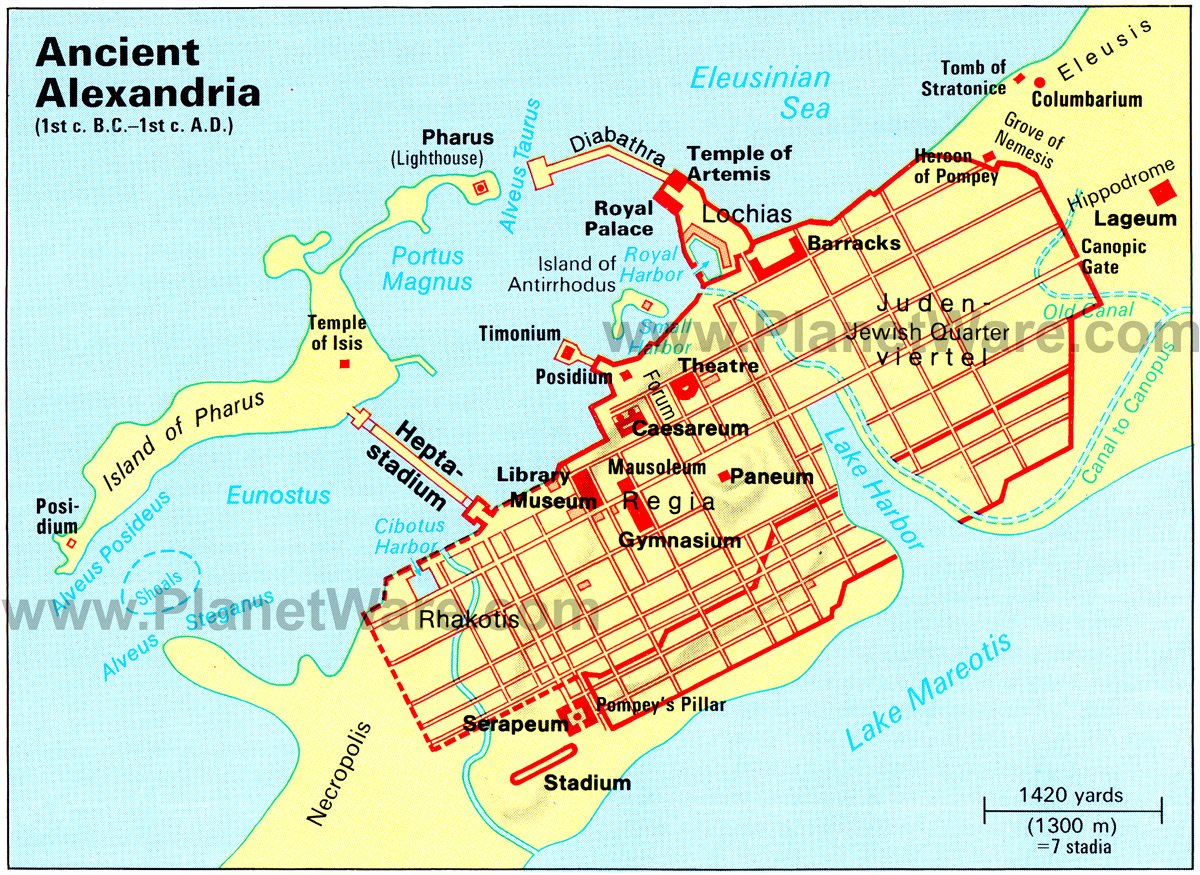In 332 BC, Alexander the Great liberated the land of Egypt from the Persian Empire. Compelled by the flattery of the Egyptian people and perhaps a sense of his own need for immortality, Alexander decided to leave a permanent legacy in Egypt: a city at the end of the Nile Delta. This city would naturally bear his name as had the many other cities he had started along his invasion route. While the Greek surveyors lined out the streets by spreading grains of wheat, local birds flocked to eat it up. Interpreting this as a bad omen, Alexander nearly gave up the project altogether, but his skillful soothsayers convinced him that the omen was not bad but good. They interpreted to him that the way the birds were fed by the seeds, so would millions be fed by this city.
Indeed, the prophecy proved true. Although Alexander never lived to see the city completed, Alexandria and Egypt were passed on to Alexander’s friend and general, Ptolemy. Under Ptolemy and his successors, Alexandria grew and thrived. The streets were designed to be parallel with the winds from the Northern Mediterranean so that the city could breathe in fresh air during the long summers. Built on a natural harbor, Alexandria became the leading port city of the Eastern Mediterranean and even began to rival Punic Carthage in the West. A private investor built a great lighthouse to guide the ships coming into the new Harbor of the Pharaohs. The Ptolemy dynasty sponsored a state library to house all the records from the known world. This library came to be the greatest collection of scrolls and documents to that date and wouldn’t be equaled until the founding of the Vatican Library. Such a magnificent metropolis could not but help getting into the political arena. Although the Ptolemies were able to skillfully play off the various factions that were left in the wake of Alexander’s conquests, they were forced to reckon with a new rising power in the West.
When Rome defeated Carthage in the 3rd Punic War, it was drawn into the politics of the East when it had to fight a number of defensive wars against the Greeks. When the King of Pergamum bequeathed his kingdom in Asia Minor to Rome, the Ptolemies recognized where the wind was blowing. In the 1st century BC, Ptolemy XII asked Rome to mediate the succession of his throne. These events led to further entanglement between Rome and Egypt, because Ptomely’s successor was Cleopatra VII, who married Julius Caesar and later Marc Antony. Alexandria might have become the second capital of the Mediterranean world had its chance not been squandered by the star-eyed lovers Antony and Cleopatra. Once Caesar Augustus defeated Antony and Cleopatra at the battle of Actium and incorporated Egypt into the Roman Empire, Alexandria became the second largest city next to Rome. Although it never dominated the political landscape, Alexandria continued to be a centre of learning, culture, and wealth. Ever a jewel to whomever possessed it, Alexandria passed from nation to nation but it continues to bear the name of its original founder.



No comments:
Post a Comment